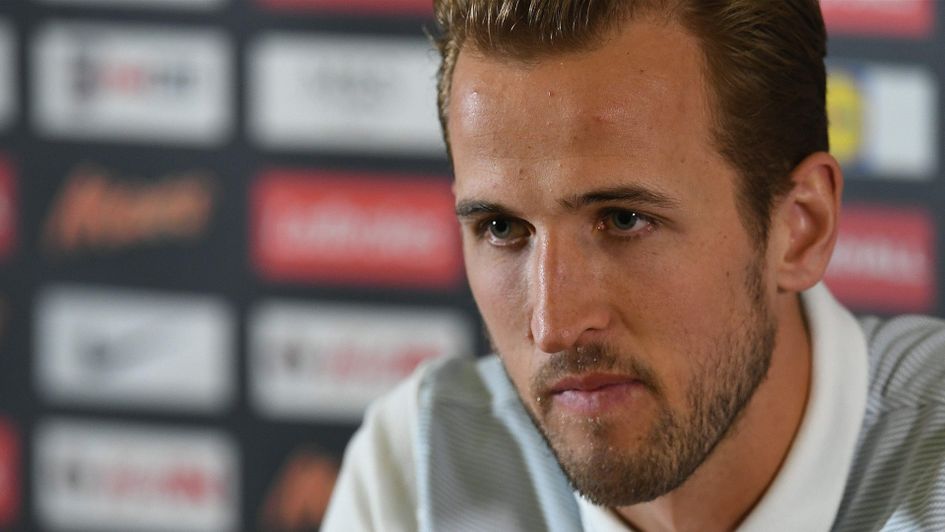 Fast Results
Fast Results Scores
Scores Racecards
Racecards 
Tottenham striker Harry Kane to captain England against Scotland
Harry Kane will captain England against Scotland as Gareth Southgate continues to develop a leadership culture within his group.
The Tottenham striker will lead his country out for the first time in Saturday's World Cup qualifier, becoming the fifth player to wear the armband in seven matches under Southgate.
The England boss is in no rush to make a permanent appointment after a lack of game time and form cost Wayne Rooney a place in the squad.
And Southgate feels 23-year-old Kane will benefit from the experience after following England's all-time top goalscorer plus Jordan Henderson, Gary Cahill and Joe Hart in being handed the honour.
Southgate said: "People have said to me there were a lack of leaders in the team and I don't see that to be the case. But I felt it important to try and give people the opportunity to lead in different ways.
"Everybody's different, everybody has different leadership styles, has a different impact on the game and around the training ground and the hotels, in meetings and Harry's one of a number of people I could have given that opportunity to. But a couple of the others have done it already and I wanted to give him that boost for the game."
The twice Premier League top goalscorer has scored five goals in 17 internationals and Southgate has been impressed by his desire to improve.
"We have worked with him for a long time, he has a great mentality and wants to the one of the best players in the world," the former Middlesbrough manager said.
"He has got huge belief in himself, he's always had that. When he worked with us for the first time for the under-21s, he wasn't in Tottenham's first team but he had great self-belief even then and he has grown to be an outstanding player."
Southgate would not rule out trying out more skippers in forthcoming matches before making a long-term appointment.
"I don't feel any rush," he said. "The most important thing when we came in was to develop people, look at who can lead, who wants to lead, who can be encouraged to lead and to take pressure off one person that all the expectation is on, because I think that's been a problem in the recent history.
"At some point it will be important to decide what structure we want and there's bit more clarity but more importantly that we develop five or six leaders who are really leading the group.
"Even as a captain at times you want someone else to pass the baton on to. It can't always be the same players that leads in every meeting, in every training session. During a game you want different people to step forward, whether that's with the ball or influencing others."
Southgate's novel approach to the captaincy has been replicated in other ways in the build-up to the Hampden clash, notably when he took the squad on an exercise with the Royal Marines. And he felt the experience will live with the players for life.
"We had to adapt to some new situations, we had to perform under pressure, we had to come together as a team, spend time together in a completely different environment," he said.
"We were able to observe an elite group working at a high level, and the standards they set for themselves all the time. We were looking at mentality, communication, leadership - there were so many shared experiences.
"The biggest thing was coming together as one team. All the players and the support team went through everything and that was fantastic.
"And also there are times when you want people to have a great life experience, something that will stay with them forever, that is beyond just building towards a game or a World Cup. Life is about memories and that's a weekend that will stay with everyone forever."
Another noted diversion from the norm was bringing in Scottish forward coach, Allan Russell, a former Kilmarnock and Airdrie striker, to coach the likes of Kane and Jermain Defoe.
Southgate said: "Sometimes when you go from being an academy player to a first-team player the focus shifts to team and tactical preparation and sometimes we can forget that everyone can still improve techniques.
"We have been to look at other sports - fast bowlers and batsmen are constantly working on their techniques, goal-kickers in rugby have technical practice.
"It's important to invest in individuals in terms of giving them time studying where their goals come from, how they finish technically, might they take up positions and approach the ball in different ways? Allan's detail is impressive and that's why I invited him in."